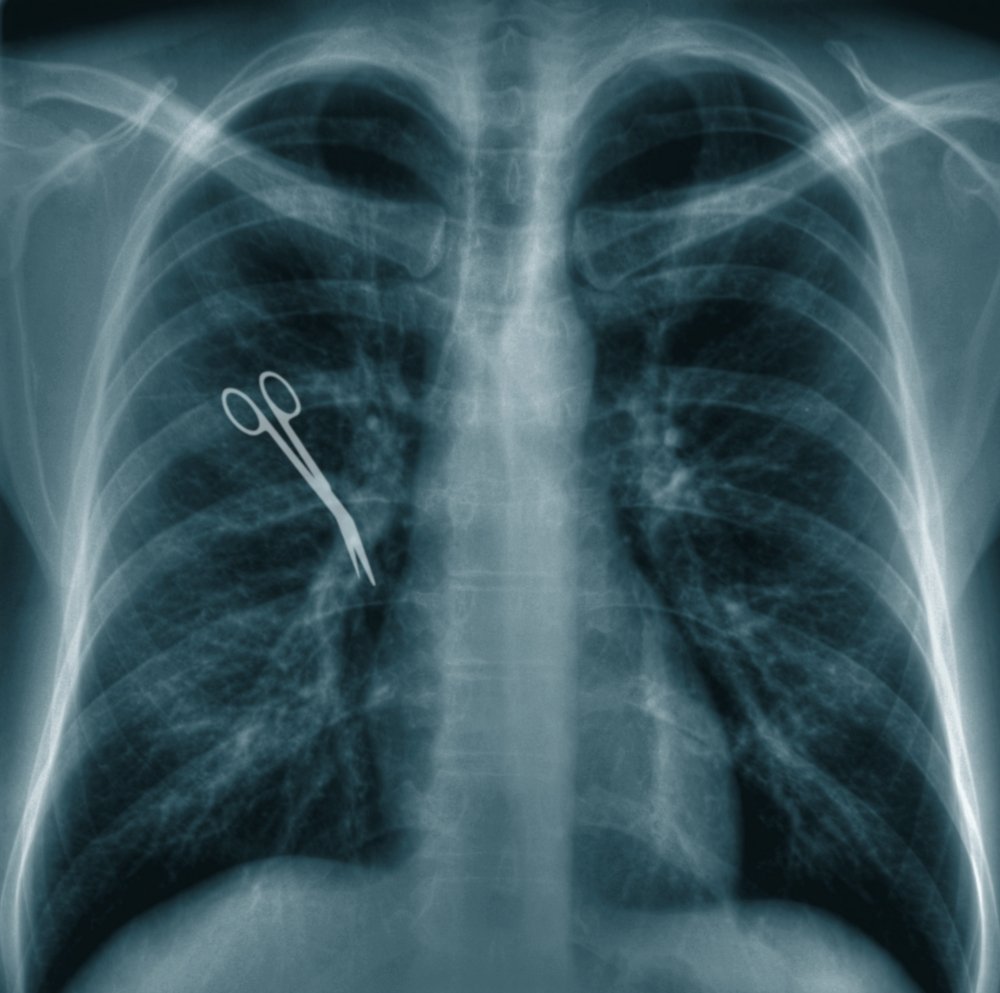Medical malpractice lawsuits in Nevada are when you sue healthcare providers, such as doctors, chiropractors, dentists, nurses, or hospitals. The legal claim is that the provider’s professional negligence caused your injuries.
You can potentially recover:
- unlimited compensation for out-of-pocket expenses and
- up to $430,000 for pain and suffering (as of 2024).
Below, our Nevada personal injury lawyers discuss:
- 1. What is a medical malpractice case in Nevada?
- 2. Is there a limit to damages in a medical malpractice lawsuit?
- 3. Whom do I sue for medical malpractice?
- 4. How do I file a medical malpractice claim?
- 5. How long do I have to file suit?
- 6. What if I signed a liability waiver?

Medical Malpractice is the legal claim that your provider’s professional negligence caused your injuries.
1. What is a medical malpractice case in Nevada?
Under NRS 41A.015, medical malpractice in Nevada is called “professional negligence.” The statute defines it as:
“[T]he failure of a provider of health care … to use the reasonable care, skill or knowledge … used under similar circumstances by similarly trained and experienced providers…1
Acceptable medical standards depend on current norms:
Example: For ten years, Dr. Nguyen has been prescribing Zantac. Then in 2019, the FDA announced Zantac may cause cancer. Dr. Nguyen then switched her patients to new medicines. Here, Dr. Nguyen committed no malpractice. She reasonably did not know Zantac was dangerous. Then she acted once the FDA made its announcement.
What if Dr. Nguyen continued prescribing Zantac even after the FDA warning? And some patients developed cancer? Then she might be liable for medical malpractice. Prescribing in defiance of FDA protocols is likely negligent.
Ten examples of medical malpractice are:
- Failure to get informed consent to a medical procedure
- Failure to refer to a specialist
- Failure to treat complications
- Failure to diagnose
- Failure to treat disease
- Failure to oversee employees or agents
- Failure to render appropriate care
- Giving the wrong dosage or type of medicine
- Wrongful death during surgery
- Wrongful birth
2. Is there a limit to damages in a medical malpractice lawsuit?
For Nevada medical malpractice cases, there are no limits to economic damages. Economic damages include compensation for:
- Medical bills, such as hospital stays, home health care, and medication,
- Lost wages from being too injured to work,
- Loss of future earnings from being too injured to work in the future, and
- Other out-of-pocket costs
But Nevada caps non-economic damages at $430,000 as of 2024.2 Non-economic damages include:
- Pain and suffering,
- Physical impairment, and
- Other damages difficult to calculate3
Nevada voters approved the cap on non-economic damages in 2004. It was part of a medical malpractice reform ballot. The measure was called the “Keep Our Doctors in Nevada” initiative. The Nevada Supreme Court has upheld this cap as constitutional.
Note that the pain and suffering damages cap for Nevada medical malpractice cases increases with each year:
| Year | Medical negligence damage cap in Nevada |
| 2024 | $430,000 |
| 2025 | $510,000 |
| 2026 | $590,000 |
| 2027 | $670,000 |
| 2028 | $750,000 |
Starting in 2029, the cap will increase by 2.1% annually.4
Most malpractice cases settle without a trial. Though depending on the situation, it may be worth it to litigate. Insurance payouts increase as insurance claims advance through the legal system.5
In general, payouts are lowest for claims closed prior to filing. Plus payouts are highest for claims closed after a trial. In Nevada, claims decided by a trial result in average payouts at least 2½ times larger than settled claims.6
3. Whom do I sue for medical malpractice?
Ten potential defendants in Nevada malpractice lawsuits include:
- Physicians, which may include general practitioners, specialists and surgeons
- Physician assistants (PAs)
- The nurses, including APRNs
- Hospitals, clinics, or surgery centers
- Chiropractors
- Dentists and hygienists
- Optometrists
- Physical or occupational therapists
- Dietitians
- Medical laboratory directors and technicians.
Predictably, doctors and their medical groups/employers have the deepest pockets.
4. How do I file a medical malpractice claim?
Nevada law provides specific instructions for filing a malpractice claim. They must be followed to the letter. Ultimately, you must prove the following five “elements”:
- The defendant owed you a duty to exercise due care toward you;
- The defendant had a heightened duty to use such skill, prudence, and diligence as other members of the profession commonly possess and exercise;
- The defendant breached the duty of care;
- That breach caused harm to you; and
- You were damaged by the breach
Many people do not see doctors until they are already sick. So it may be hard to determine whether a victim’s injury or death resulted from the provider’s negligence.
To prove this direct causation in Nevada, the law usually requires you to submit an affidavit of a medical expert. The expert must be in the same or similar field as the defendant. The affiant must declare that the injury was the result of the defendant’s negligence and not a natural result of your illness.
If the case goes to trial, further medical expert testimony may be necessary. You must prove it is more likely than not that the defendant’s negligence caused your injuries.7
5. How long do I have to file suit?
In Nevada medical malpractice cases, for injuries that occurred on or after October 1, 2023, the statute of limitations is the earlier of:
- Three years after the doctor’s malpractice; or
- Two years from discovering the injury or the date on which you should have discovered the injury through reasonable diligence.8
Note that if the victim was a young child who suffered brain damage or a birth defect, the statute of limitations is their 10th birthday.
There are also situations where the statute of limitations pauses (“tolls“), such as if the medical provider is being prosecuted criminally. Your personal injury attorney can help you calculate your time limit to sue.
Also note that when you file the complaint, it must also include the affidavit of merit in which a suitable medical expert swears to reviewing and supporting your claims. Failure to file the affidavit within the statute of limitations could cause your case to be dismissed.
The reason statutes of limitations exist is to encourage wronged parties to seek justice before
- the case becomes stale,
- memories fade, and
- evidence disappears.
Learn more about statutes of limitations in Nevada personal injury cases.
6. What if I signed a liability waiver?
Consent forms may prevent you from suing for medical negligence if:
- You were of sound mind when signing it. For example, not under the influence of heavy painkillers; and
- You signed the form willingly. For instance, no one forced you to sign; and
- The waiver identifies the risks of the medical procedure and drugs.
Though in several cases, your injuries fall outside the scope of consent forms. Or the doctor did not adequately disclose all the risks. There are often ways to sue despite a liability waiver.9

Contact our Las Vegas personal injury attorneys for help with your case.
Call us for help…
Injured by a healthcare provider in Nevada? Our Las Vegas medical malpractice lawyers can help.
In California? See our article on medical negligence in California.
In Colorado? See our article on medical negligence in Colorado.
See our related article on Nevada good Samaritan laws and What is the statute of limitations for medical malpractice in Nevada?
Legal references:
- NRS 41A.017.
- NRS 41A.035.
- NRS 41A.011.
- Tam v. Eighth Judicial District Court, 358 P.3d 234 (2015). AB 404 (2023). In 2023, the pain and suffering damages cap in Nevada medical malpractice cases was $350,000.
- Thomas H. Cohen, Ph.D and Kristen A. Hughes, MPA, Medical Malpractice Claims in Seven States 2000-2004, Bureau of Justice Statistics Special Report, March 2007.
- Id.
- Perez v. Las Vegas Medical Ctr., 107 Nev. 1, 805 P.2d 589 (1991); Washoe Med. Ctr. v. Second Judicial Dist. Court, 122 Nev. 1298, 148 P.3d 790 (2006).
- NRS 41A.097. AB 404 (2023).
- See Hansen v. Universal Health Servs., Inc., 115 Nev. 24, 974 P.2d 1158 (1999).


